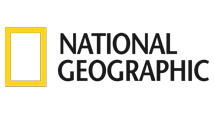VOLUNTEER PROJECTS ABROAD - WHAT YOU CAN DO & WHERE?
USE THE FILTER TO SEARCH BY VOLUNTEERING TYPE, DESTINATION, DURATION, AGE
Volunteer abroad on our ethical, sustainable and supported volunteer placements at animal sanctuaries, conservation projects and community initiatives around the world. We are an award winning non-profit organisation that has searched the globe for the best volunteering projects.
With a range of carefully structured volunteer projects, we will help you to share your passion and interests by giving you an amazing volunteering and travel experience whilst making a positive difference and making new friends along the way! Our volunteer projects abroad are for 1 to 12 weeks and we offer volunteering for individuals, groups and families.Filter

Marine Conservation
Thailand- Learn about coral reefs, marine species and how we can monitor, protect and preserve
- Open to all dive levels and experience, conservation certificates included
Duration: 1 – 4 weeks + dive courses
Cost from: £945 / €1095 / $1180
Discover more >
Elephant Care and Research
South Africa- Join an active research team collecting data to guide best practice management of elephant husbandry
- Work closely with African elephants providing care and enrichment
Duration: 1 - 12 weeks
Cost from: £995 / €1155 / $1245
Discover more >
Wildlife Rescue
Costa Rica- Assist at a wildlife sanctuary which provides a safe haven for rescued animals
- Help to care for animals including sloths, monkeys and exotic birds
Duration: 1 - 12 weeks
Cost from: £795 / €920 / $995
Discover more >
Turtle and Wildlife Conservation
Costa Rica- Join an active scientific project monitoring and protecting sea turtles and other wildlife
- Live in a research and education station on the stunning South Pacific coast
Duration: 1 – 12 weeks
Cost from: £725 / €840 / $905
Discover more >
Community Volunteering
Ghana- Join a passionate team and help build a brighter future for rural Ghanaian communities
- Get involved in a diverse range of community initiatives from handwashing projects to baby weighing!
Duration: 1 - 12 weeks
Cost from: £995 / €1155 / $1245
Discover more >
Wildlife Rescue - Family Volunteering
Costa Rica- Work with your family to care for rescued animals living at the sanctuary
- Assist the team in providing a safe haven for monkeys, sloths and birds
Duration: 1 week
Cost from: £1895 / €2200 / $2370
Discover more >
Endangered Wildlife Conservation
South Africa- Award winning conservation of priority species including black rhino, African wild dog, leopard, elephant and lion
- Join a small team living on a stunning game reserve
Duration: 2 - 12 weeks
Cost from: £1695 / €1965 / $2120
Discover more >
Elephant Care
Thailand- Help look after amazing rescued elephants and ensure that they receive the best care
- Live on site at a tropical wildlife sanctuary home to around 900 animals
Duration: 1 - 12 weeks
Cost from: £695 / €805 / $870
Discover more >
Horse Rehabilitation
South Africa- Help to care for and rehabilitate around 30 horses - no previous riding experience required!
- Enjoy riding along the Indian Ocean whilst watching whales and dolphins
Duration: 1 – 12 weeks
Cost from: £895 / €1040 / $1120
Discover more >
Dog Rescue
Thailand- Support a Dog and Cat sanctuary on the tropical island of Phuket
- Help walk, socialise and play with the dogs
Duration: 1– 8 weeks
Cost from: £495 / €575 / $620
Discover more >
Big 5 Conservation
South Africa- Experience incredible Big 5 sightings and help local communities
- Live on a stunning wildlife reserve, near to the beautiful beaches of the Garden Route
Duration: 1 – 12 weeks
Cost from: £995 / €1155 / $1245
Discover more >
Caribbean Reef Conservation
Belize- Join an award-winning project on the world's second largest coral reef
- Learn to dive or develop your skills whilst carrying out conservation work
Duration: 1 – 12 weeks
Cost from: £995 / €1155 / $1245
Discover more >
U18 Trip - Turtle and Conservation - October half term (age 16-18)
Greece- Learn about turtles, birds and natural ecosystems and get involved in their protection
- Enjoy the beautiful island of Kefalonia with a group of 16-18 year olds and Team Leaders
Duration: 1 week (6 nights)
Cost from: £1395 / €1620 / $1745
Discover more >
Big Cat Rescue
South Africa- Help care for rescued lions, tigers and other animals at this ethical big cat project
- Live at a beautiful rural African volunteer lodge, waking up to the sounds of lions!
Duration: 1 – 12 weeks
Cost from: £795 / €920 / $995
Discover more >
Turtle Conservation Volunteering (age 18+)
Greece- Help monitor and protect endangered sea turtles on the beautiful island of Kefalonia
- Gain hands on experience with research and conservation tasks
Duration: 2 - 4 weeks
Cost from: £699 / €810 / $875
Discover more >
Amazon Conservation
Peru- Work alongside scientific researchers to document the ecosystem and help conserve the rainforest
- Study local wildlife including rare Blue-headed macaw, jaguars and monkeys
Duration: 2 – 12 weeks
Cost from: £1595 / €1850 / $1995
Discover more >
Adult Trip - Turtle and Marine Conservation (age 23+)
Greece- Learn about and protect endangered sea turtles and coastal ecosystems
- Enjoy the beautiful island of Kefalonia
Duration: 1 week (6 days)
Cost from: £595 / €690 / $745
Discover more >
Elephant and Wildlife Conservation
Sri Lanka- Join the team to support vital work helping to protect wild elephants
- Research sloth bears, leopards and other exotic wildlife
Duration: 1 - 12 weeks
Cost from: £895 / €1040 / $1120
Discover more >
Desert Elephant Conservation - Family Trip
Namibia- Work with your family to help protect and research desert elephants in Namibia
- Join a family volunteering team to support elephant conservation and community work
Duration: 11 days
Cost from: £995 / €1155 / $1245
Discover more >
Marine Conservation
South Africa- Obtain or advance your dive qualifications and enjoy some incredible diving in the Indian Ocean
- Learn about marine ecology in South Africa's first UNESCO World Heritage site
Duration: 2 - 12 weeks
Cost from: £1495 / €1735 / $1870
Discover more >
Social Media, Video and Photography Volunteering
Ghana- Use your social media, photography or film skills to support charity engagement
- Work with a passionate charity to help improve local lives
Duration: 1 - 12 weeks
Cost from: £995 / €1155 / $1245
Discover more >
U18 Trip - Turtle and Marine Conservation - Summer (age 16-17)
Greece- Learn about and protect endangered sea turtles and coastal ecosystems
- Enjoy the beautiful island of Kefalonia with a group of 16-17 year olds and Team Leaders
Duration: 1 week
Cost from: £1395 / €1620 / $1745
Discover more >
Wildlife Rescue
Thailand- Work with rescued bears, monkeys, otters, gibbons and other exotic animals
- Help to protect endangered animals, living onsite at a tropical wildlife sanctuary
Duration: 1 - 12 weeks
Cost from: £695 / €805 / $870
Discover more >
Turtle Conservation
Costa Rica- Help find and protect turtle nests and release turtle hatchlings into the ocean
- Live a beach lifestyle along beautiful unspoilt coastline of the Nicoya Peninsula
Duration: 1 – 12 weeks
Cost from: £995 / €1155 / $1245
Discover more >
Elephant Conservation
Cambodia- Assist at a sanctuary which provides a home for rescued Asian elephants
- Observe elephants in their natural surroundings and help support the daily running of the sanctuary
Duration: 1 – 12 weeks
Cost from: £695 / €805 / $870
Discover more >
Marine and Coastal Conservation Volunteering (age 18+)
Greece- Help protect the sand dunes and seagrass meadows on the beautiful island of Kefalonia
- Gain hands on experience and skills in research and conservation
Duration: 2 - 4 weeks
Cost from: £799 / €925 / $1000
Discover more >
Family Education Trip - Turtle and Marine Conservation (age 8+)
Greece- Learn about and protect endangered sea turtles and coastal ecosystems with your family
- Enjoy the beautiful island of Kefalonia
Duration: 1 week (6 days)
Cost from: £475 / €550 / $595
Discover more >
Desert Elephant Conservation
Namibia- Join an elephant tracking team to research the wild elephant population
- Build protection walls for farmers' water sources and drinking water points for the desert elephants
Duration: 2 – 12 weeks
Cost from: £1295 / €1500 / $1620
Discover more >Unfortunately no projects matched your search. Please adjust your filter options so that we can help find a project for you.
Book with confidence - supporting volunteers since 2001, flexible booking arrangements and full financial protection
Find out more






